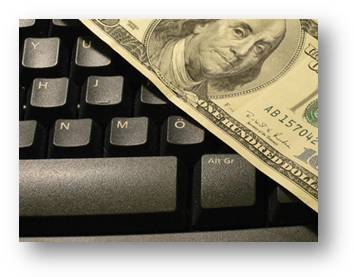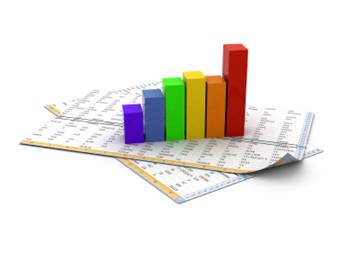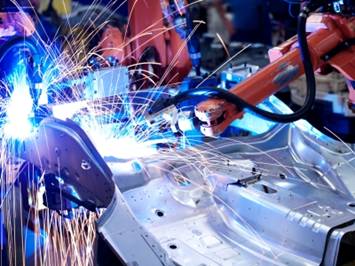Processes: Business functions
A business is usually split into a series of different departments. Each department has a specific function in the operation of the business. For example, the accounting department will be responsible for the management of all financial matters relating to the business. This might include managing the businesses bank accounts, invoicing customers, collecting debts and so on. Each of these different functions is a crucial part of the overall business.
Human resources function (Human Resource Management or HRM for short)
 Firms need people and the human resources department is responsible for the management of people. The responsibilities of the HR department will include:
Firms need people and the human resources department is responsible for the management of people. The responsibilities of the HR department will include:
- Recruitment - the process of finding appropriate people for a given role. This includes advertising a vacancy, selecting candidates for interview, managing contracts of employment, job descriptions and so on.
- Training - both new and existing staff will need training to help them develop and improve their skills and this will be the responsibility of the HR department.
- Pay - people work for money and this process needs managing. How much is each job worth, what other benefits do employees get (pension entitlement, fringe benefits and so on), what happens when people are sick? All these questions and issues are dealt with by the HR department.
- Employee relations and welfare - this includes pay negotiations with employees, disciplinary procedures, considering grievances of employees as well as health and safety, social activities and so on. All these will usually be handled by the HR department.
Human Resources - labour or workforce
Human resources is a collective term for the people within a firm. They are often described and classified by their function:
- Owners - the nature of ownership depends on the legal structure of the firm. The owner may be one person (sole trader) or a group of individuals (partners), or ownership may rest with a group of shareholders.
- Directors - people appointed by the owners to look after their interests. Some directors are also employees. These are the executive directors who are responsible for the day-to-day management of the firm. The senior executive director is the Managing Director or the Chief Executive Officer (CEO). The other directors, the Non-Executive Directors, only sit on the Board and are expected to watch and advise both the board and the owners.
- Managers - people responsible for the planning and control of the business.
- Employees - people who operate the business on a day-to-day basis.
People may be in more than one group. An employee may also be a shareholder, for instance. This can cause a serious conflict of interest.
 Accounting and finance function
Accounting and finance function
The accounting and finance department are responsible for all issues related to the management of money and the flows of money around the business and between the firm and other firms or customers. The Accounting function involves the collection, recording, presentation and analysis of financial data. This may include 'management accounts' for the directors of the firm to view on a regular basis or the public or 'financial accounts' for anyone to view (if the firm is a public limited company). The Finance function, on the other hand, is concerned with raising the money required for all business operations and the decision-making on how and where that money should be spent.
The responsibilities of the finance function include:
- Sources of finance -decisions about the most appropriate source of finance for each activity.
- Cash flow -the way in which money moves in and out of the business. It is important to balance and manage these flows. If too much money flows out at a given time, the firm is in danger of insolvency.
- Credit control - the process of collecting debts and managing payments. At any given time a firm will be owed money by its customers and may owe money to its suppliers.
Marketing function
 This is seen by many as the heart of the business as the marketing department tends to have the most direct contact with customers. It is important to realise that marketing is not the same as 'selling', but is a much broader concept. The responsibilities of the marketing department may include:
This is seen by many as the heart of the business as the marketing department tends to have the most direct contact with customers. It is important to realise that marketing is not the same as 'selling', but is a much broader concept. The responsibilities of the marketing department may include:
- Researching the market - identifying market opportunities, examining the nature of customers and potential customers, understanding the target market for the good or service, testing consumer reaction to potential products and so on.
- New product development - the marketing department will often work together with the production department to develop new products and services. The marketing department will test if there is a market for the product, identify the features or characteristics that the product requires and may carry out test launches of the product in advance of the full product launch.
- Marketing mix - the marketing department will develop the mix of strategies that will help with selling the product. This includes the pricing of the product, the promotion, the nature of the product and the distribution channels for the product.
Production function (Operations Management or OM for short)
 The production function is perhaps the clearest of all. It may also be called the 'operations' function of the firm. However, as with marketing, there is more to the production function than immediately meets the eye. The responsibilities of the production department may include:
The production function is perhaps the clearest of all. It may also be called the 'operations' function of the firm. However, as with marketing, there is more to the production function than immediately meets the eye. The responsibilities of the production department may include:
- New product development - in association with the marketing department
- Research and development (R & D) - R&D refers to systematic investigation or innovation; the outcomes of which are new or improved materials, products, devices, processes, or services. Prototypes of new products may be tested by the marketing department with potential customers.
- Production planning - the production department will consider the layout of the facility, the optimum location of production, the method of production, the type of machinery and so on.
- Quality control - the quality of the product or service is crucial if the reputation of the firm is to be maintained and enhanced.
- Distribution - the production department will organise the distribution of the good or service to the customers. This may be through middlemen or 'intermediaries' such as retail shops or agents or direct to the customer through e-commerce.
- Purchasing and stock control - the production department is responsible for the purchase of stocks or raw materials required for production.
